Birds typically hide out from the rain, but what happens when it rains for days on end with no signs of relief? What do birds do when it rains?
Birds typically find shelter to stay warm when it rains. If they can’t find shelter, they may risk the chance of catching hypothermia and dying. But this rarely happens.
When birds get wet, they looked soaked and bogged down from the rain. But despite this disheveled appearance, birds have evolved over the years to adapt better to wet weather.
How Do Birds Stay Warm?
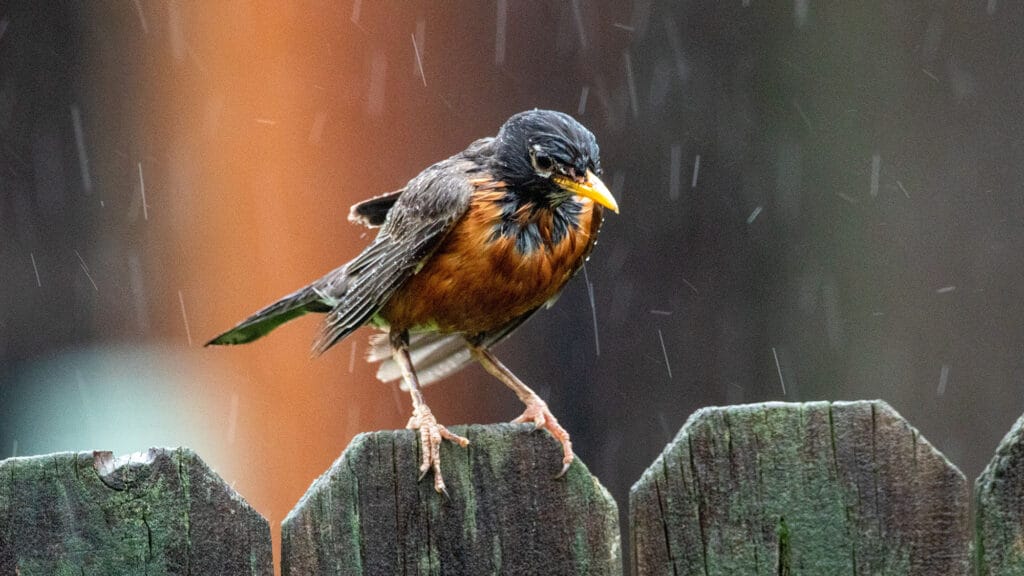
Birds are able to stay warm thanks to their feathers, which trap pockets of air underneath them. Imagine you are lying, warm and toasty, underneath a down duvet. Feather, despite being so lightweight, can keep you exceptionally warm.
But if birds get drenched in the rain, how effective are the pockets? If these air pockets become saturated with water. The birds then cannot regulate their temperatures as effectively, and as such, their core temperature drops drastically.
Author Note: The bird could then get hypothermia and suffer. Large birds have a lower surface-to-volume ratio than smaller birds, and as such, can tolerate colder temperatures. Smaller birds lose heat more rapidly than larger birds.
Where Do Birds Take Shelter?
Shrubs and bushes become the hiding place as the rain begins to fall. But, what happens when the rain does not relent? Birds typically have fast metabolisms and need to venture out for food even if the rain does not stop. At most, a bird can hide out for a couple of hours. If the rain continues for some time, they cannot ride the entire storm out as they will need food.
If light rain is falling, the water will roll off the feathers. This is because the bird’s feathers are water-resistant, and the water won’t penetrate the skin. You might even see birds sitting in light rain, with their feathers fluffed.
In heavier rains, birds will typically flatten their feathers. This flattening will ensure higher water resistance, preventing the water from penetrating the skin.
Did You Know: Some birds can use their own oil glands to encourage more resistance against water. The birds use their bills to extract their natural oils from the oil glands situated right at the base of their tails.
They then spread this oil over the rest of their body. Being able to apply their natural oil over their body ensures higher water resistance.
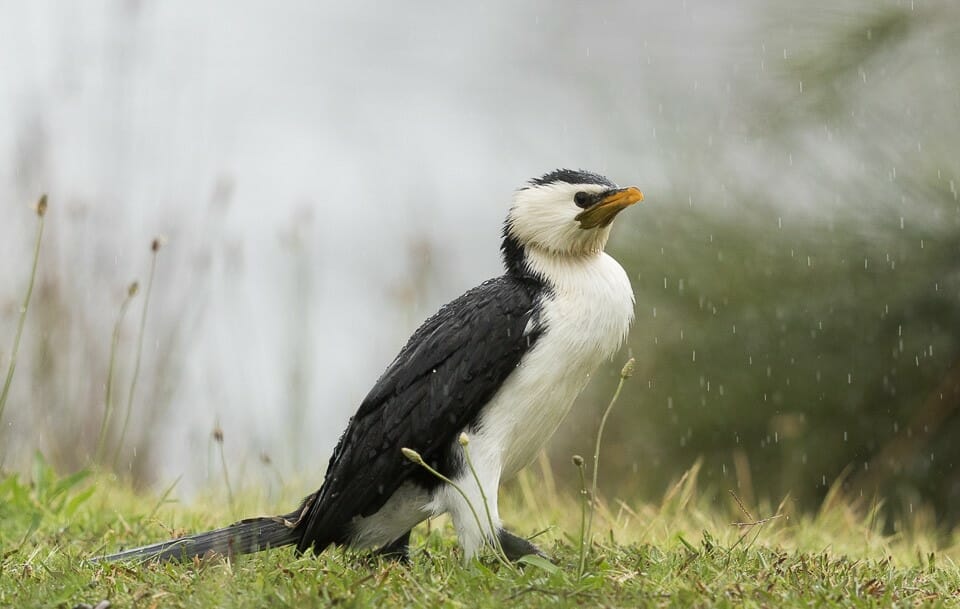
Heavy Rains
When the heavens open up, and the rain begins to pour, most birds adopt a universal posture. The birds keep their bodies upright and aim their beaks toward the rain, helping them to save their energy and reduce how much rain comes into contact with their bodies.
In this upright posture, gravity helps encourage the raindrops to run right off the body. Have you ever seen birds gathered in a group? While you may think this huddling is to keep themselves warm, it serves other purposes too. By gathering in a huddle, the birds protect each other and prevent the rain from soaking their bodies.
Birds Bathing in the Rain
While you may have heard of humans singing in the rain, have you ever seen birds bathing in the rain?
In areas with hot climates, birds love to take baths in the rain, especially in drought-ridden areas. In hot and dry regions, birds can be seen perched high in trees and on branches’ tips. They will spread their wings and expand their feathers, allowing their bodies to become drenched with the heavenly water. If a bird watcher watches long enough, they would see the bird giving their feathers a good shake, much in the same spirit as “shaking their tail feathers.”

By allowing the water to soak through their feathers and giving an excellent vigorous shake every now and then, the birds put on quite the display. For birds living in drought areas, this is a real treat. Once the rain clears and the sun peeks through once again, they clean their feathers and spread them out to dry in the sun’s heat.
Do Birds Fly in the Rain?
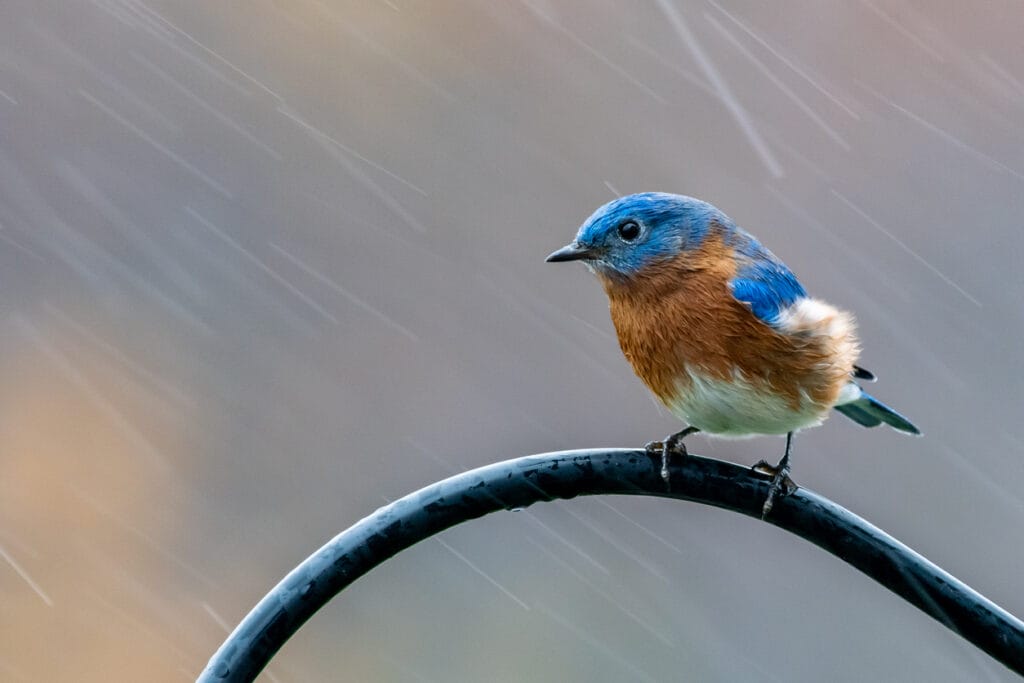
Some birds do fly in the rain, although the distance is kept at a minimum. Birds who use oil to protect their feathers will often take to the skies in the rain, but only for short distances. However, heavy rains will prevent even the most water-resistant wings from flying.
Author Note: Heavy rains cause feathers to become saturated with water, preventing them from being the fantastic flyers they naturally are. And the result? A bird that isn’t flying at its best will be more susceptible to predators.
Ducks in the Rain
While it may come as a surprise, some birds enjoy the rain, and heavier rains serve as a great opportunity. This is especially true because there may be fewer predators around. Ducks (or bull sprigs) will often be out in heavy rain, enjoying the wet weather without much risk.
What’s more, a wet season means that there will be more insect larvae to forage. If there was ever a bird that loved a heavy downpour, it’s the duck.

Land Birds in the Rain
If you’re an avid bird watcher, then you probably already know that if a light rain is falling, birds will still go about their business as usual. This is because they are designed to have at least some sort of water resistance. Unless it’s a heavy rain, water will generally just slide off the feathers, and their bodies will be kept warm thanks to the air pockets beneath their feathers.
But in the heavier rains, most land birds will seek shelter from the storm. Small bushes, shrubs, thickets, or even some trees will provide excellent shelter from heavy rain. In order to maintain their body warmth for as long as possible, the birds will stay still and conserve their energy.
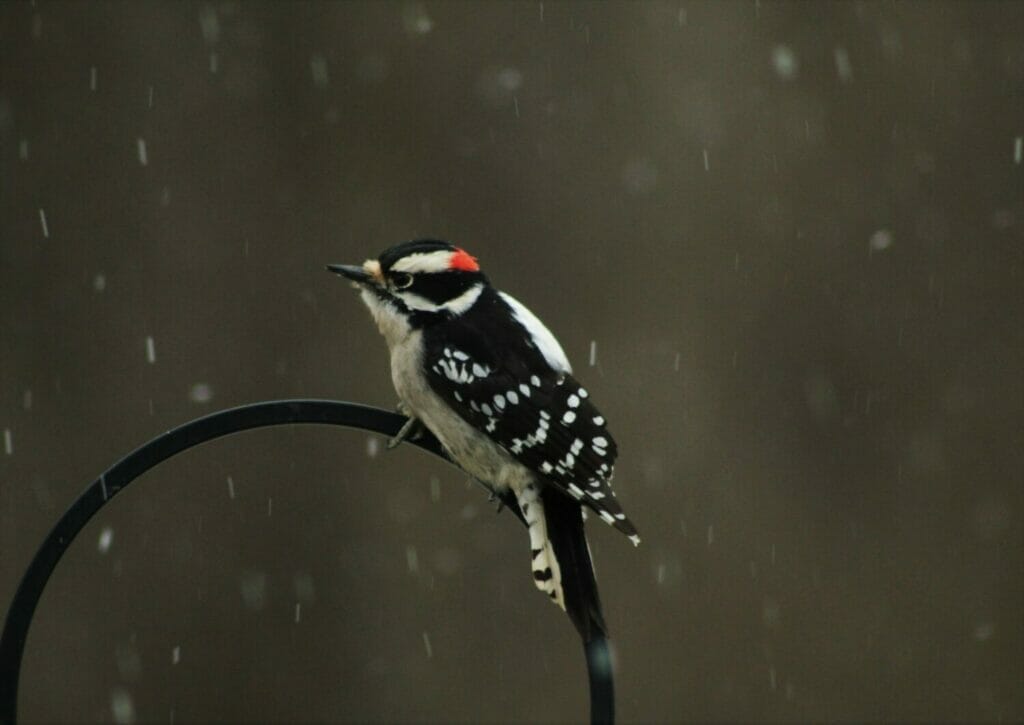
If the rain does not cease, then the birds will eventually run out of energy. So, they will have to venture out and find food to fuel their energy. Birds that feed on insects may have a tough time finding grubs while it is raining, but they tend to be spoilt for choice after the rain.
Raptors may also suffer during prolonged periods of rain. Birds that feed on seeds and worms will be okay for food, especially since heavy rains tend to unearth worms. If a storm rages on for a prolonged period of time, then raptors and insect-eating birds will suffer greatly and face hypothermia and even death.
Small birds and young chicks tend to lose heat rapidly and will need to feed sooner than larger birds. It is particularly dramatic if a heavy rain comes during the breeding season. The bird population could be under threat if rains come during the breeding season, and the young are likely to suffer greatly.
Seabirds in the Rain
You would think that birds would not be too bothered in the heavy rains. How do they fair out at sea? Large breeds of seabirds will stay out at sea to wait out the storm. Small seabirds will generally flock to safety on land. Sometimes, storms can be an excellent help for birdwatchers.
This is because they could spot some birds that they would typically struggle to see. Birds that typically stay flying far out to sea may come to land to find shelter. You could even begin to predict storms by watching the behavior of some seabirds. Birds such as pelicans or even seagulls will let you know when a storm is approaching. Even if the human eye can’t spot the storm, gulls and pelicans will seek shelter on land when they sense an approaching storm.
Microhabitats
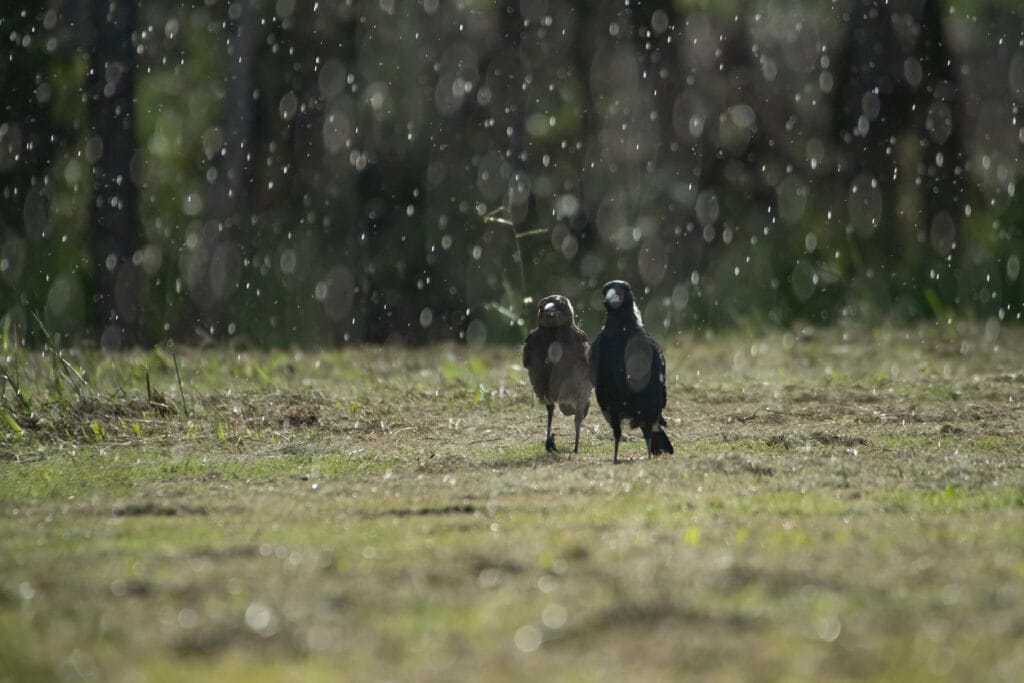
Microhabitats provide shelter from the storm, particularly for small birds that can hide in thick bushes. Microhabitats are hedges, thick ground bushes, or even on the sides of trees. Smaller birds are able to find shelter easier for their small bodies. Small birds take advantage of the heat they can find closer to the ground.
While birds generally take shelter in bushes and ground cover, they cannot hide forever. Birds, especially the smaller species, need to replenish their energy sources reasonably quickly. The threat of starvation looms overhead when the heavens open up for days on end, and birds will have to venture out to scrounge for food.
Birds that have baby chicks to keep alive will have no choice but to venture out into the cold. But, some food sources are scarce during prolonged heavy rains. For this reason, weak downpours during the breeding season can be detrimental. How can you help? Place a bird feeder in your garden that is protected from the rain so that birds always have a source of food.
Conclusion
How rain affects birds depends on the species. The smaller the bird, the more susceptible they may be to hypothermia. Birdwatchers can see birds in drier areas bathing in the rain. Birds such as vultures often take advantage of torrential downpours, sitting high in the treetops with wings spread open.
It is common to see birds fluff up their feathers during light showers as their feathers, as well as their natural oils, will keep them dry and warm. When heavy rains fall, birds tend to tighten their feathers close to their bodies. This hunkering down will help the rain slide down their bodies and keep them from getting too wet.
Author Note: It is common to see birds with their heads withdrawn and pointing their faces up to the sky during heavy downpours. They will maintain an upright posture with their feathers pulled into their bodies. By withdrawing their heads, a bird will be able to conserve more body heat.
Many shore and land birds will huddle together in groups. This helps to maintain heat and also protects from getting heavily soaked by the rain. We hope you enjoyed this article on what do birds do when it rains.
Fly high friends!
FAQ
Birds are very sensitive to changes in the air pressure and can tell when bad weather is coming. That gives them a chance to get to shelter.
There are likely to be less birds around in the rain but they still have to eat so if you are in some kind of shelter then yes, it is always worth it.
They may sing less but yes they do. However, because of the rain we may hear them less.
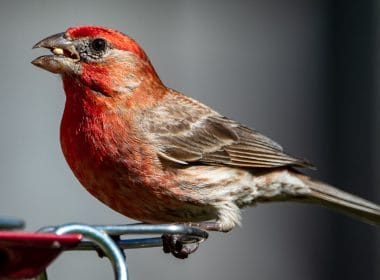
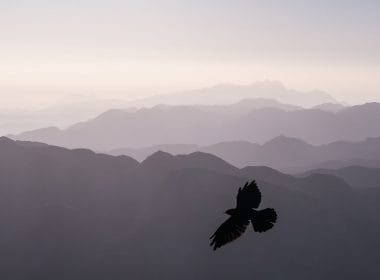
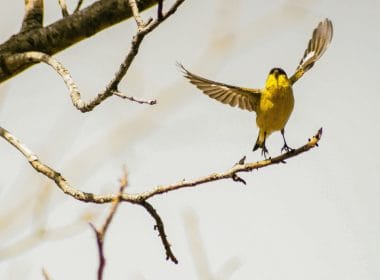

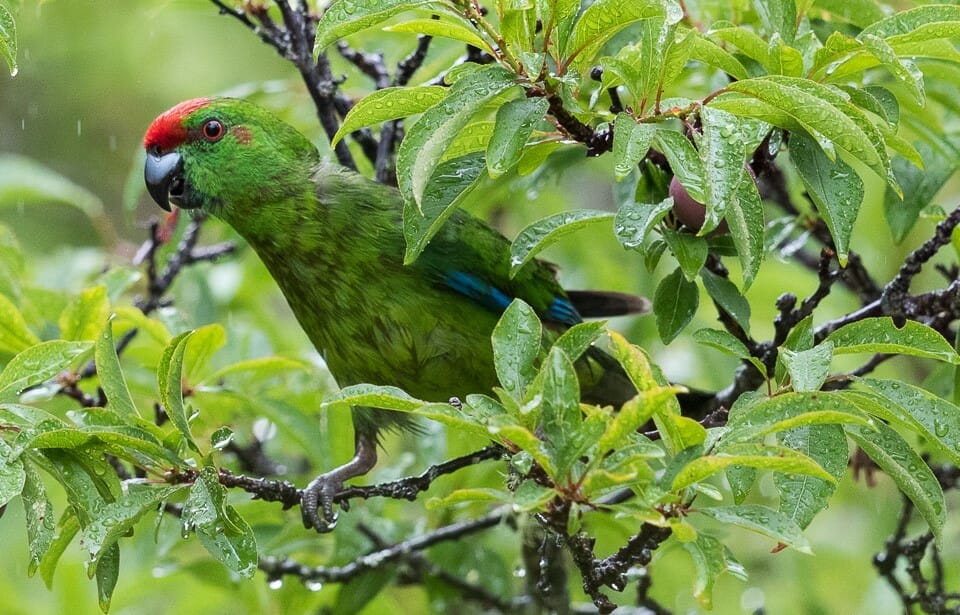
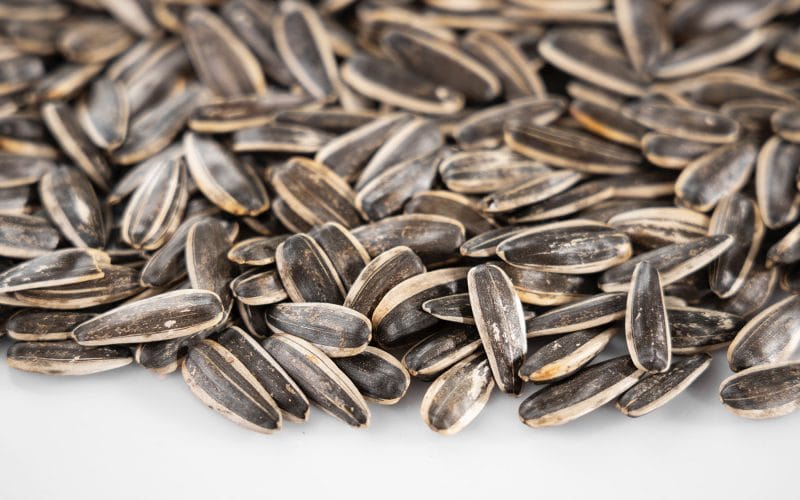
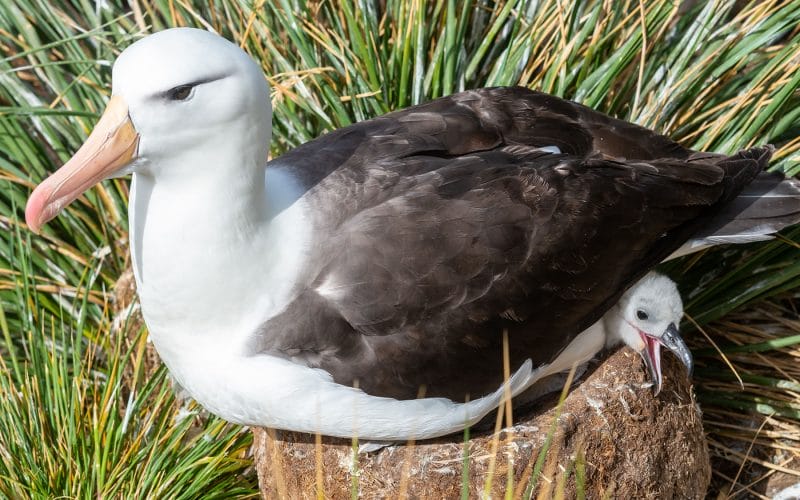
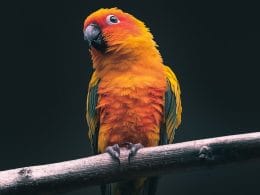
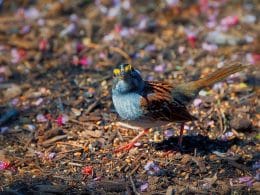
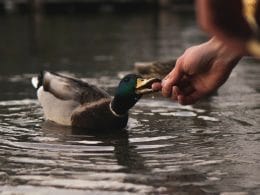
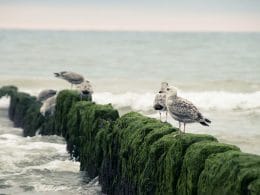
Hi,
I see the bird-in-heavy-rain posture described by numerous authors, but have yet to find a single photo of that, which strikes me as odd. Maybe the human-in-heavy-rain posture is not compatible with taking photos? I wouldn’t even describe myself as an amateur bird-watcher, but I have befriended some birds that visit our yard, and always wonder (/worry) about how they’re faring during heavy storms.
I have nesting robins and torrential rain predicted for three days. Im afraid their nest may melt as its alot of mud! I am worried but nature has its way.